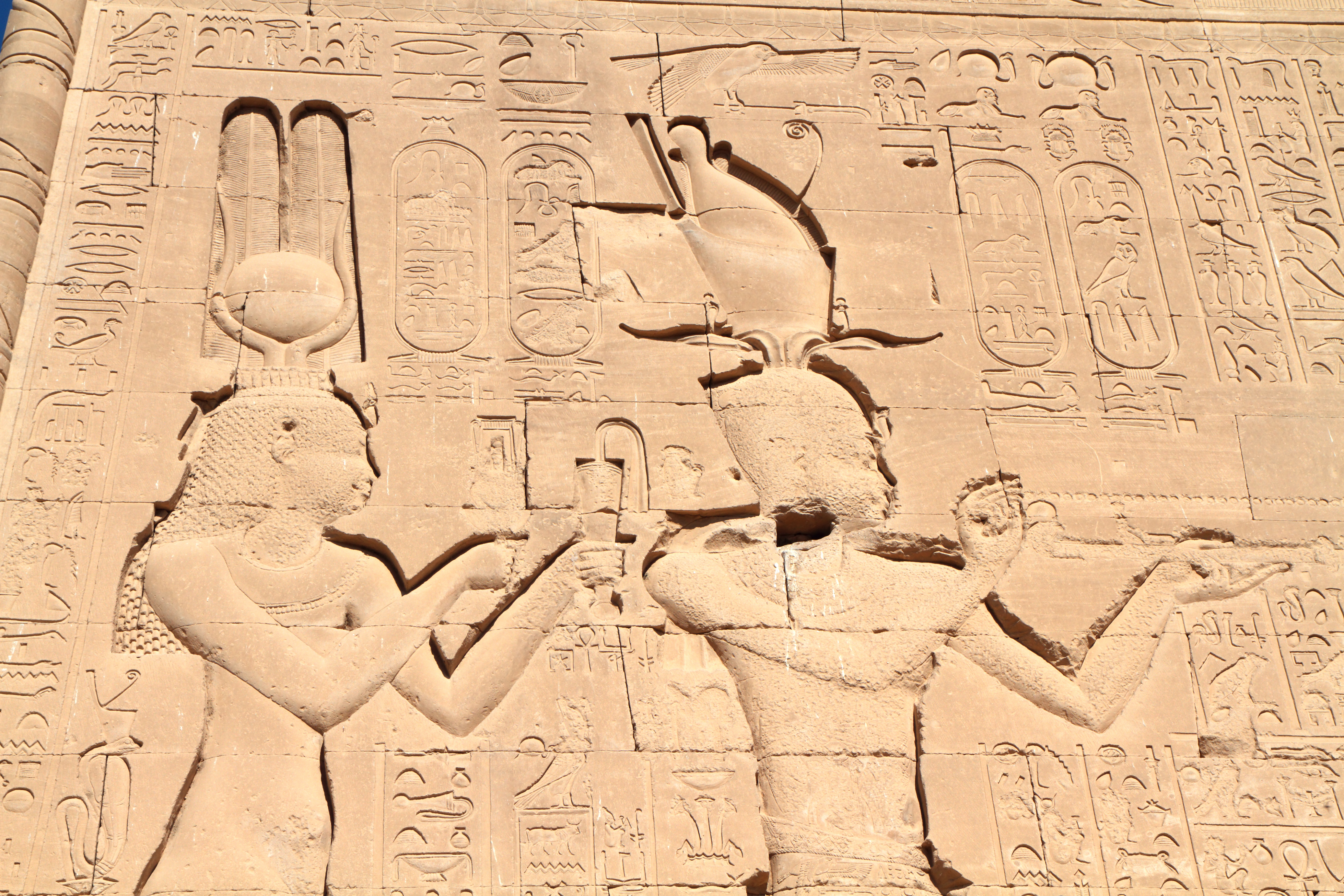Netflix's Cleopatra controversy, explained
Egypt's government objects to a Black actress playing the part of the Egyptian queen


A free daily email with the biggest news stories of the day – and the best features from TheWeek.com
You are now subscribed
Your newsletter sign-up was successful
Who knew that Cleopatra could still inspire fierce debates two millennia after her death? Netflix has come under criticism from the Egyptian government for casting a Black actress, Adele James, to play the ancient monarch in its new docudrama series African Queens.
That casting is inaccurate, Egyptian officials said after the trailer was released, according to The New York Times. "Statues of Queen Cleopatra confirm that she had Hellenistic (Greek) features, distinguished by light skin, a drawn-out nose and thin lips," Egypt's Ministry of Tourism and Antiquities tweeted in April. But the backlash has produced a backlash. "It is more likely that Cleopatra looked like our actor than Elizabeth Taylor ever did," director Tina Gharavi wrote at Variety. How did a new Netflix show become embroiled in racial controversy?
What is Netflix's African Queens about?
The two-season series is produced by Jada Pinkett Smith, Quartz reports, and covers the reigns of both Cleopatra and Queen Njinga, who ruled over portions of present-day Angola during the 1600s. The point, like last year's movie The Woman King, is to "highlight the lost stories of African female warriors and rulers." "We need to have more information and more content around Black queens that have lived," Smith said at the show's London premiere. "There is just not a lot of accessible content around these stories."
The Week
Escape your echo chamber. Get the facts behind the news, plus analysis from multiple perspectives.

Sign up for The Week's Free Newsletters
From our morning news briefing to a weekly Good News Newsletter, get the best of The Week delivered directly to your inbox.
From our morning news briefing to a weekly Good News Newsletter, get the best of The Week delivered directly to your inbox.
What has been the response?
It has occasionally gotten ugly. After the show's trailer was released on YouTube, the Times reports, "Netflix was forced to disable comments as they turned into a hostile, and occasionally racist, pile on." Then the Egyptian government weighed in, asserting that Cleopatra simply wasn't Black. One minister called the series a "falsification of Egyptian history," NBC News reports. CBS News adds: "Some Egyptians complained that the feature was appropriating their culture and rewriting their history." And the conversation spilled out into international arenas, with segments on The Daily Show and Piers Morgan's Talk TV show in the United Kingdom.
How did the filmmakers respond?
They pushed back. Deadline reports that Jane Root, the show's executive producer, put out a statement noting that Cleopatra's race is still a debate among scholars. "We decided to depict Cleopatra of mixed heritage to reflect these theories and the multicultural nature of ancient Egypt," she said. "Race in her times was a long way from what it is now." Gharavi, meanwhile pointed out that actresses like Monica Bellucci, Angelina Jolie, and Gal Gadot had either been cast or considered to play Cleopatra in previous productions of her story. "Why shouldn't Cleopatra be a melanated sister?" she wrote. "And why do some people need Cleopatra to be white?"
James, who is of mixed heritage, also responded forcefully. "I find it sad that people are either so self-loathing or so threatened by Blackness that they feel the need to do that," she said in a podcast interview, "to separate Egypt from the rest of the continent" of Africa.
What are commentators saying?
"This insistence on her whiteness is curious, as much of her lineage (including her mother's race) is unknown," The Guardian's Leila Latif writes in her review of the series. Some specifics are known, but others are lost to history, and "to default to whiteness is insidious and ridiculous."
A free daily email with the biggest news stories of the day – and the best features from TheWeek.com
Skin color isn't the only criterion for Blackness, Gwen Nally and Mary Hamil Gilbert write in the New York Times. They quote Shelley Haley, a Cleopatra expert who consulted on the series. "When we say, in general, that the ancient Egyptians were Black and, more specifically, that Cleopatra was Black," Haley says, "we claim them as part of a culture and history that has known oppression and triumph, exploitation and survival."
The debate misapplies modern categories to the ancient world, Islam Issa writes at Al Jazeera. Issa says his is the only voice in the African Queens series. "The largely binary racial terms being used today are anachronistic and can hardly be applied to Cleopatra's context." And it's also true that depictions of Cleopatra have varied widely over the years: "During the Middle Ages, she was represented as blonde; during the neoclassical craze, stereotypically Hellenic." It's no surprise that a new depiction has emerged "when systemic racism is being called out like never before."
What's next?
More Cleopatra. Netflix's African Queens premiered on the streaming service on May 10. But that won't be the end of the story. Variety reports that a government-owned Egyptian broadcaster, Al Wathaeqya, will produce its own big-budget documentary about Cleopatra in response to the Netflix production.
Joel Mathis is a writer with 30 years of newspaper and online journalism experience. His work also regularly appears in National Geographic and The Kansas City Star. His awards include best online commentary at the Online News Association and (twice) at the City and Regional Magazine Association.
-
 How the FCC’s ‘equal time’ rule works
How the FCC’s ‘equal time’ rule worksIn the Spotlight The law is at the heart of the Colbert-CBS conflict
-
 What is the endgame in the DHS shutdown?
What is the endgame in the DHS shutdown?Today’s Big Question Democrats want to rein in ICE’s immigration crackdown
-
 ‘Poor time management isn’t just an inconvenience’
‘Poor time management isn’t just an inconvenience’Instant Opinion Opinion, comment and editorials of the day
-
 Code-switching: the origins, purpose and pitfalls
Code-switching: the origins, purpose and pitfallsThe Explainer Balancing your identity and respectability politics sometimes means taking on a different tone or behavior to fit in
-
 The video game franchises with the best lore
The video game franchises with the best loreThe Week Recommends The developers behind these games used their keen attention to detail and expert storytelling abilities to create entire universes
-
 The buzziest movies from the 2023 Venice Film Festival
The buzziest movies from the 2023 Venice Film FestivalSpeed Read Which would-be Oscar contenders got a boost?
-
 America's troubling school bus driver shortage
America's troubling school bus driver shortageSpeed Read Kids are heading back to school, but they might be having trouble getting a ride
-
 5 college admissions trends to watch out for this year
5 college admissions trends to watch out for this yearSpeed Read College advisers and admissions experts say these trends will shape the 2023-2024 admissions cycle
-
 What's going on with Fyre Festival II?
What's going on with Fyre Festival II?Speed Read Convicted felon Billy McFarland claims the music festival will happen, for real this time
-
 The answer to rising home prices: smaller homes
The answer to rising home prices: smaller homesSpeed Read Builders are opting for fewer rooms and more attached styles as frustrated homebuyers look for affordable options
-
 5 illuminating books about the video game industry
5 illuminating books about the video game industrySpeed Read Cozy up with a few reads that dig into some of the most fascinating parts of video game history
